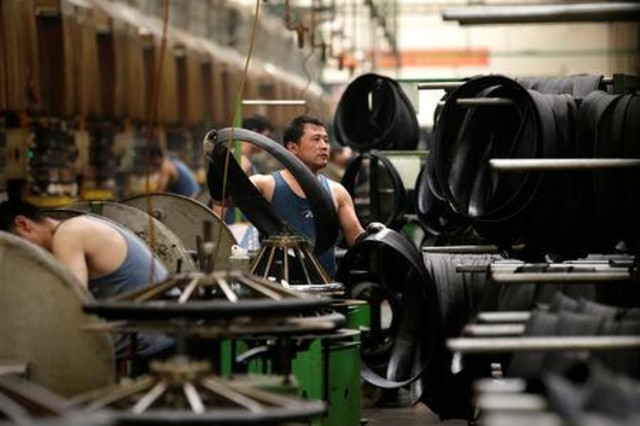Not only did China roll out measures for increased domestic consumption but it also pledged to implement reforms and use new ways to promote commerce amidst the ongoing trade issues.
Twenty measures were rolled out by the State Council to boost consumption.
Some of these include encouraging the purchase of new energy vehicles, expanding cross-border e-commerce imports and easing on car-buying restrictions.
Experts are seeing such moves as the missing link in filling-in consumers' demand for high-quality products and services that would easily make industrial upgrading possible thereby boosting the economy.
The announcement of the measures coincides with the slowing economic growth.
The economy weakened to 6.2 percent year-on-year during this second quarter in comparison with the 6.4 percent growth during 2019's first quarter.
This rollout is also part of the government's restructuring from over-reliance on exports and investments to generate growth.
According to experts, the government wants growth to come this time from consumption and domestic demand.
The document that contains the measures stated that there is still some work to be done when it comes to having enough supply of goods and services to satisfy customer demand.
It encouraged traditional companies to innovate and stated that there's a lot of room to unleash market consumption.
In this regard, it has new measures that encourage mergers of business platforms with new technologies, improvement of pedestrian shopping areas, promotion of activities during public holidays, support of trade-ins for household appliances and upgrade of shopping centers.
The list of measures focuses on key areas and weak links in the economy.
Tang Jianwei, chief researcher at the Financial Research Center of the Bank of Communications said that though "Consumption remains the main driver of growth, contributing 60.1 percent of China's economic growth in the first half," he said that the key to more growth "is to use measures to strengthen the weak links and improve people's incomes."
Tang also added that he sees two shortcomings in domestic consumption stalling.
He said that though the first shortcoming can be fixed with an improvement in income, the second shortcoming can be remedied by having sufficient "domestically made high-end products and services."
eMarketer's worldwide retail and e-commerce forecast supports the fact that consumption is the main driver of economic growth in China.
Its report says the mainland still stands to surpass the United States in being the world's top retail market in 2019.
It also stated that China's overall retail sales will rise to 7.5 percent this year amounting to $5.64 trillion while it will be $5.53 trillion for US retail sales.
The State Council included encouraging financial institutions to innovate consumer credit products and services.
Dong Ximiao, a researcher at the National Institution for Finance and Development agrees to say it will fend off risks, improve service efficiencies and give better customer experiences.
He also added that the country is now in "a critical period of upgrading and transformation."
Dong stressed that China's consumer market is entering a new era dictated by "technology, high quality, and services."





